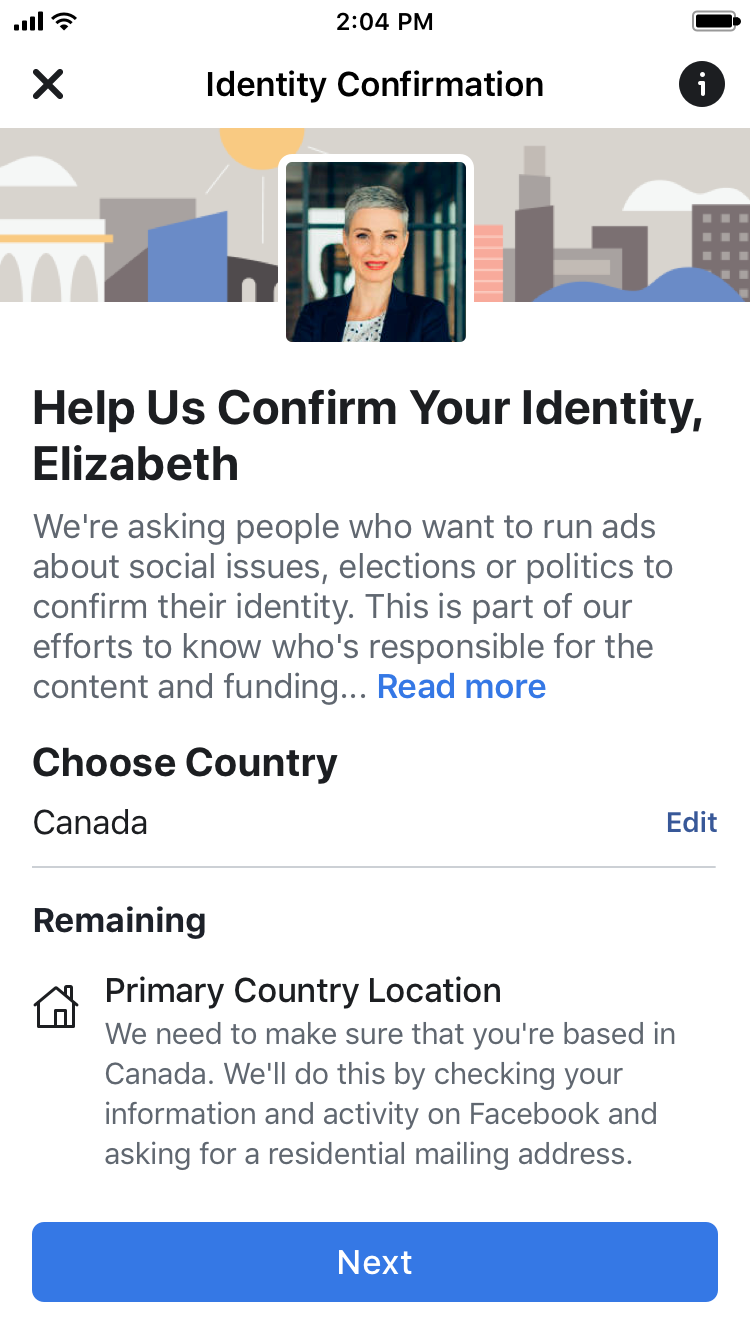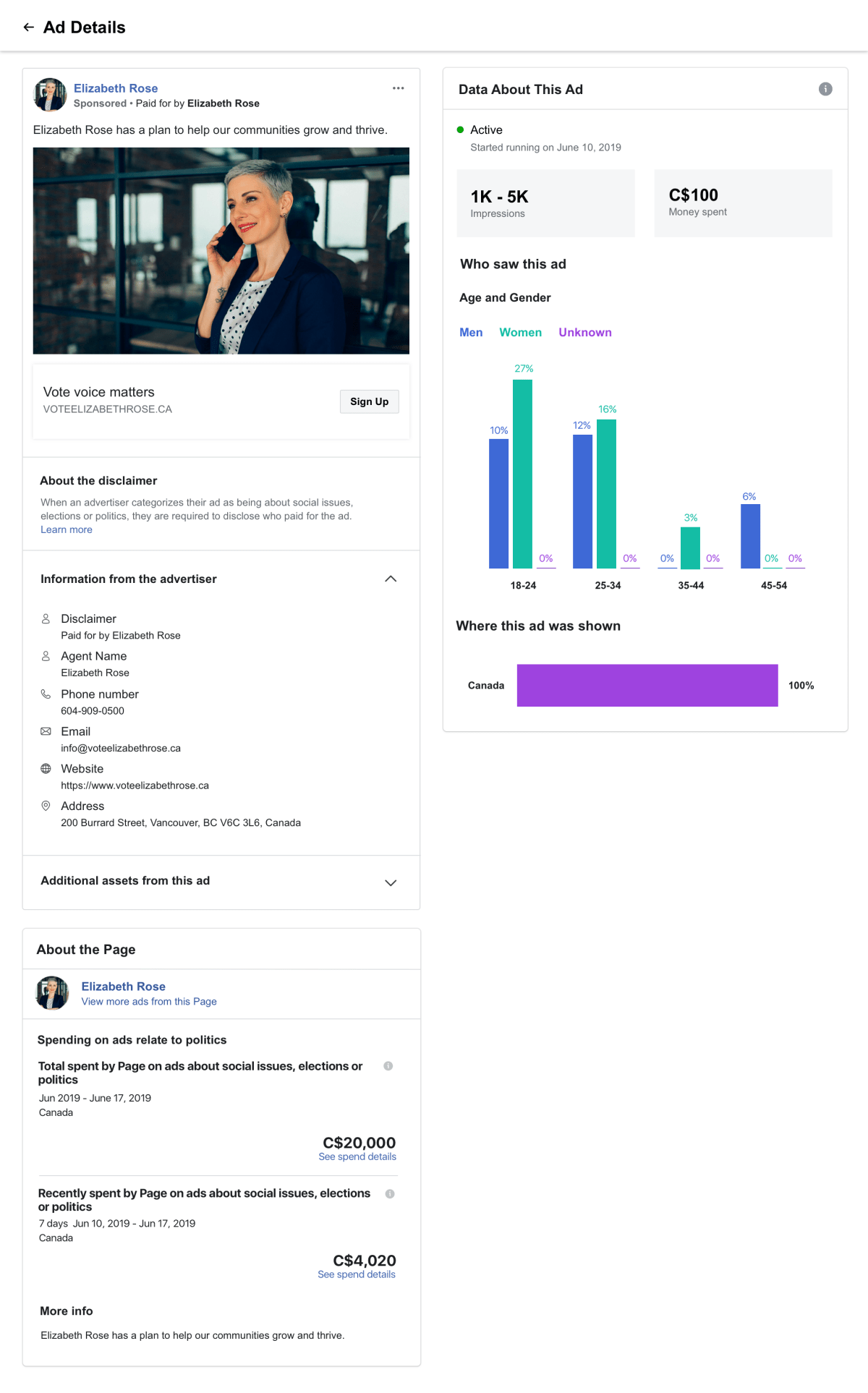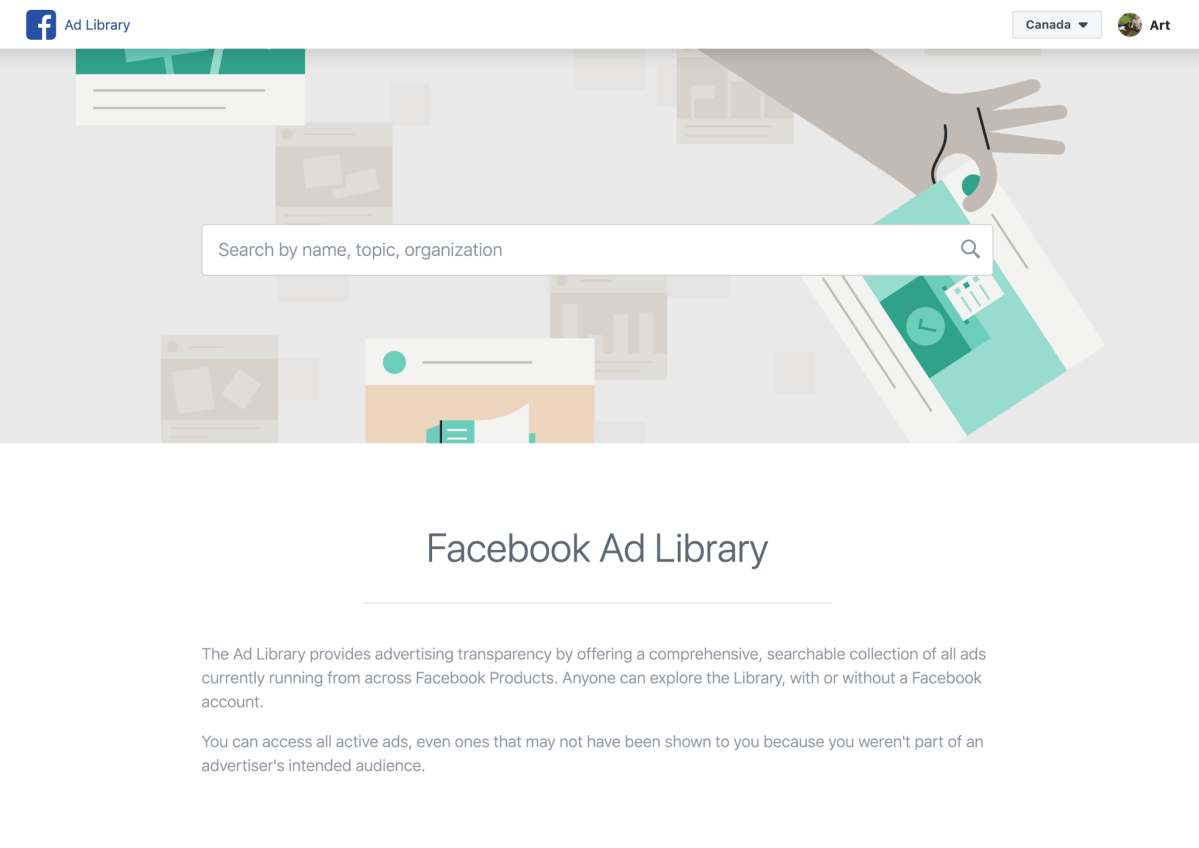Facebook announced the launch of new tools on Monday in the lead up to Canada’s federal election this fall, intended to make political advertising on the platform more transparent

The roster of additional tools will include ad authorization functionalities to verify advertisers on the platform and an ad library, which will provide users additional information about the reach and ownership of an ad.
In addition, advertisers that wish to “discuss, debate or advocate for or against” a list of specific issues during the election will need to complete the ad authorization process. These issues include civil and social rights, economy, environmental politics, health, immigration, political values and governance and security and foreign policy.
“We have done the hard work to build tools and policies that require advertisers to complete an authorizations process, including confirming their identity and location, before running ads about social issues, elections or politics. These ads will be publicly available in the Ad Library for 7 years,” said Kevin Chan, head of public policy at Facebook Canada, in a statement.
Facebook has come under fire over the past year for its role in the discourse surrounding the U.S. presidential election of 2016, which has shone a light on the use of social media by foreign and domestic bad actors to spread disinformation, exacerbate societal divisions and impact the election outcome.
These tools are being released following several consultations between tech giants and Canadian officials to maintain the integrity of Canada’s upcoming election. The International Grand Committee on Big Data, Privacy and Democracy met in Ottawa at the end of May to discuss how to prevent social media from making unauthorized use of individuals’ personal information, spreading fake news, perpetuating discontent and ultimately impacting election outcomes.
Facebook CEO Mark Zuckerberg and Chief Operations Officer Sheryl Sandberg declined to honour a summons by the Canadian government to attend the hearing, during which Facebook joined the Canada Declaration for Electoral Integrity.

Get breaking National news
“Joining the Canada Declaration on Electoral Integrity reflects how deeply committed we are to playing a meaningful role in promoting a healthy and resilient democracy,” he said at the time.
The authorization process for advertisers will consist of the following components; two-factor authorization for accounts, Canadian government-issued ID (passport, driver’s license, etc), and location verification through a mailed postal code.
Advertisers will be made to confirm their identity and their location within Canada and disclose who is responsible for their ad. To prevent foreign interference, all advertisers who wish to run ads about social issues, elections or politics will need to be authorized.
An advertiser can select themselves, a Facebook page they run or another organization to appear in the “paid for by” disclaimer. Advertisers must also provide additional information if the party named as having paid for the ad is different than the party posting it.
Advertisements about social issues, elections of politics will be available in the Facebook Ad Library for a period of seven years.
While Alfred Hermida, the director of the journalism school at the University of British Columbia, applauds Facebook’s efforts to be more transparent, he’s concerned these new tools don’t address the heart of the issue.
“I think one of the challenges that Facebook advertising is that there can be not just two or three versions of an ad. There can be hundreds of thousands of versions of the same posting that are being targeted at different communities,” he explained.
Political advertising has gone beyond simply filming a television commercial or putting up a billboard, he explained. Today, political parties and stakeholders can microtarget specific communities based on nuanced characteristics that go beyond broad descriptors such as age, gender and ethnicity. Rather, advertisers are using criteria such as particular interests and specific political and personal beliefs.
“So one of the challenges that is knowing what you see might be slightly different to what I see. Therefore the problem is, how do you know what kind of messages are being delivered to which constituents?” he added.
While he calls the authorization tools a “step in the right direction,” he notes that they stop short of informing Facebook users who an ad is targeting and exactly, and who may be funding the parties paying for those ads.
“Are they backed by the Liberals or are they backed by Conservatives? Who’s funded them? We don’t know,” Hermida said.
“So in some ways yes this is a positive step but it really is only a first step in providing greater transparency because part of it is knowing who are these groups behind the advertising?”
This issue goes beyond Facebook, he insists. Other platforms, Twitter in particular, have faced similar issues with false accounts and misinformation. At this point, a number of different stakeholders, including social media platforms and government bodies, are navigating uncharted territory.
“Facebook, Elections Canada and the political system are all trying to adjust to this new reality where there is so much data.”
–With a file from the Canadian Press.

























Comments
Want to discuss? Please read our Commenting Policy first.